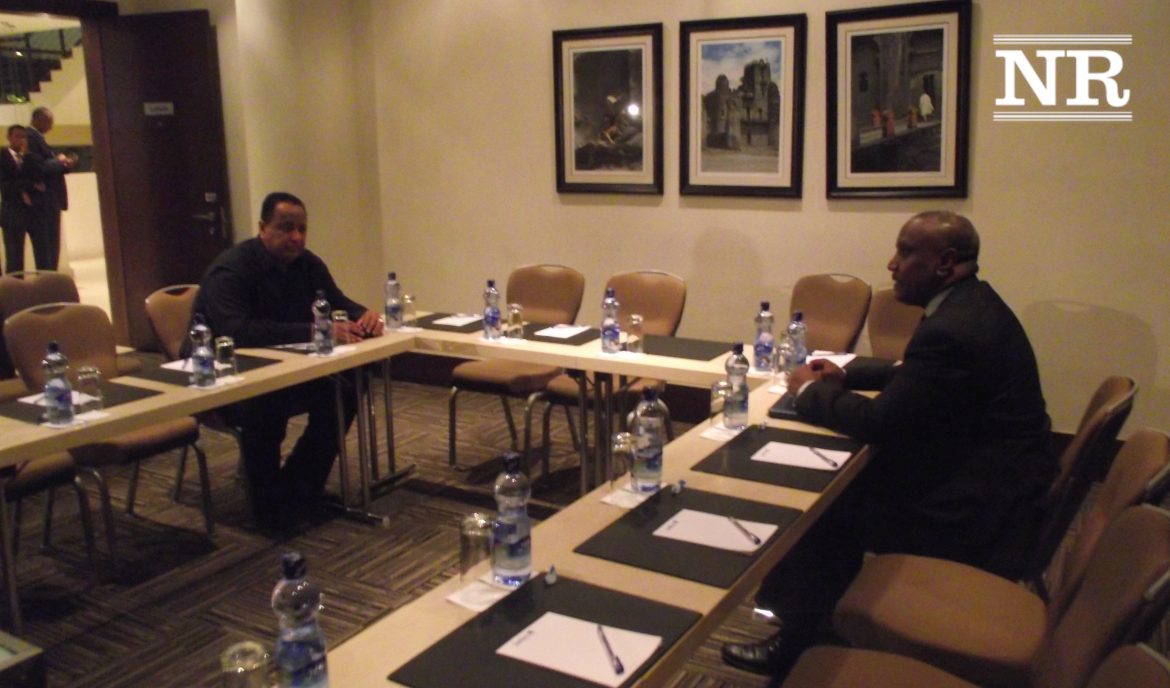The United States is pushing for comprehensive, pan-Sudan peace talks as tens of thousands of in South Kordofan flee shelling, aerial bombardment and massive military attacks.
Negotiations between the SPLM-North and Khartoum fizzled out yet again in Addis Ababa, Ethiopia as fighting around South Kordofan intensified. The negotiation teams failed to agree even on the scope of the talks, and both sides appeared committed to solving their problems on the battlefield.
As the talks drew to a close last week, Sudanese government forces led by the Rapid Support Force Militia launched a 3-pronged attack on Abri, just south of Delami. The attack was preceeded by massive shelling of the area, which forced an estimated 20,000 civilians to flee their homes. “We are concerned about the recent increase in violence in Southern Kordofan, and particularly over the continued indiscriminate bombings and shelling of civilian areas, in addition to the use of the Rapid Support Forces (RSF) militia in the conflict,” said United States Department of State Spokesperson Jen Psaki.
The talks in Ethiopia ended April 30 after one week of meetings between the two sides, mediated by former South African President Thabo Mbeki and the African Union High Implementation Panel on Sudan (AUHIP).
Like several previous meetings, the talks stalled even before they began, with the SPLM-North insisting on a comprehensive dialogue involving the other members of the Sudan Revolutionary Front Coalition – Darfur’s JEM and SLA. The government team similarly refused to discuss humanitarian access for the beleaguered Blue Nile and South Kordofan States, a major sticking point for the SPLM-North.
The SPLM-N negotiation team also maintained the need to follow a roadmap agreement signed on June 28, 2011 between SPLM-N leader Malik Agar and Sudanese Presidential Advisor Nafie Ali Nafie.
The vague document calls for such steps as the formation of a committee “to address all relevant issues related to Southern Kordofan and Blue Nile including those requiring attention to national constitutional questions.” According to the document, such issues include “the relationship between the center and its states.” Sudanese President Bashir rejected the agreement almost immediately after it was signed.
The AUHIP put forward a new framework proposal on the February 18, hoping to narrow the discussion. The framework calls on both sides to end the fighting and allow humanitarian access regardless of the progress towards broader national discussions.
But the SPLA-N has held firm that the discussions be based on the 2011 agreement, which was highlighted by the United Nations Security Council when it approved the AUHIP mandate. The positions of both sides have prevented even an agreement on an agenda for the negotiations.
“The parties have not yet shown the necessary political will to make the hard compromises necessary to find a peaceful resolution,” said State Department Spokesperson Psaki.
Despite this frustration, the United States is backing the SPLM-N and Sudan Revolutionary Front (SRF) call for broader discussions on Sudan’s future.
“Sudan’s conflicts are indicative of a widespread failure to govern equitably and inclusively,” said the Spokesperson and the international community must not allow Khartoum to continue obscuring national issues by painting them as isolated regional events.” She called on Sudan to engage in talks that include “all levels and regions” of society and address “the root causes of these conflicts.” The language closely mirrors that of SRF Secretary General Malik Agar, who has argued Sudan’s problems could not be addressed in a “piecemeal” fashion.
The most recent round ground to a halt very shortly after talks opened on April 22. According to sources close to the talks, the AUHIP sat with both sides to discuss their objections to both the recent AU proposal and the 2011 agreement. Each side highlighted portions of the document they agreed with, while providing alternatives to provisions they disagreed with.
It is unclear how the AUHIP intends to use these notes. The negotiations are expected to resume around May 20. Until then the most violent fighting season in the past two years is set to continue in South Kordofan.





